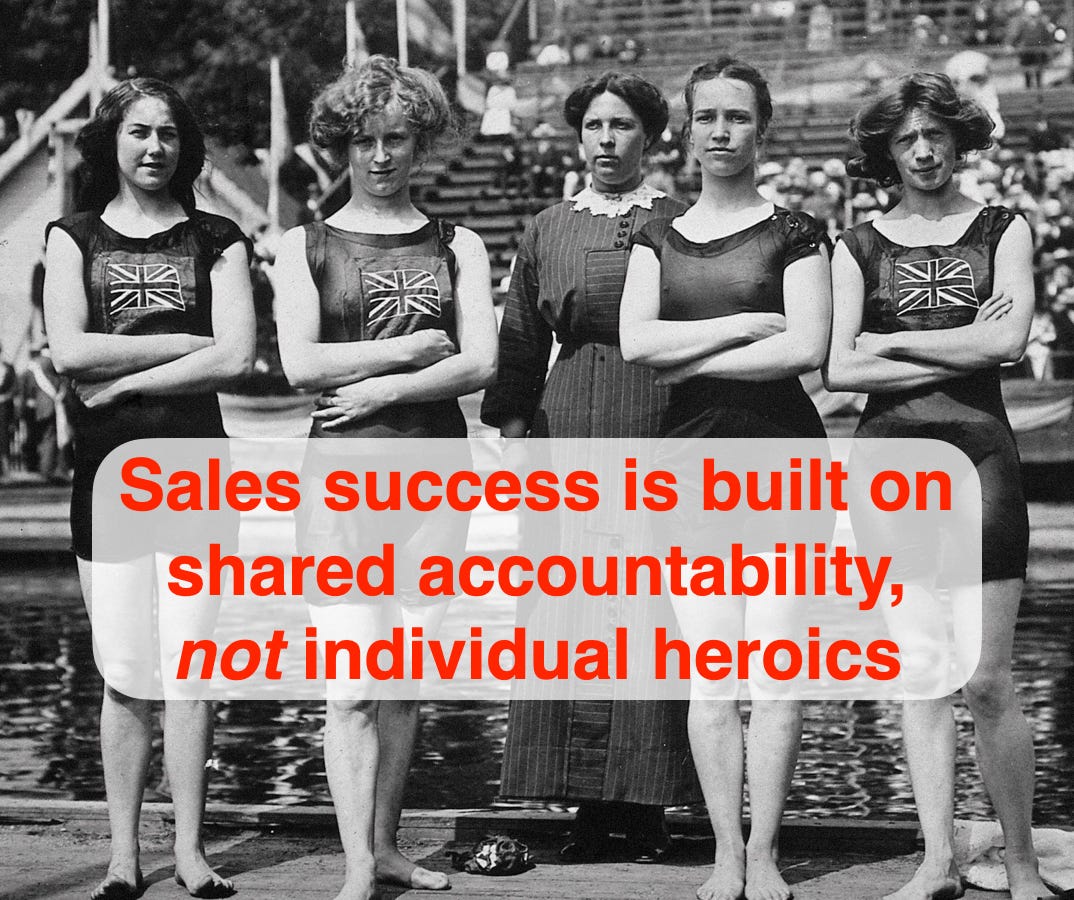Your Sales Team is Falling Short. The Data Says It's Your Culture.
Google research shows psychological safety drives a 36% revenue swing
Sales managers love a star sales rep. The emphasis on cultivating individual talent is a mainstay of this industry. The accepted notion: one need simply assemble a team of all-stars and the rest will take care of itself.
This approach is outdated, misguided, and wrong.
The data shows that team trust is the single greatest predictor of success. Google’s research reveals:
Teams that foster trust and a learning culture exceeded sales targets by 17% 📈
Teams with low psychological safety fell short by up to 19% 📉
That massive delta is determined by how a team collaborates. Leaders should strive to cultivate an environment where everyone can feel they’re trusted contributors.1
4 Actionable Steps:
“What I Learned” Huddle: Start meetings by having a sales rep share a mistake and the lesson learned. There’s only one rule: no blame. This normalizes failure (which accelerates progress) and promotes collective intelligence. 🧠
Pair High-Risk Accounts: Assign two reps to jointly service each other’s most challenging, high potential accounts. This forces shared accountability and builds trust. 👯
Shared Success Bonus (Team SPIFF - Sales Performance Incentive Fund): Introduce an incentive tied to a collective goal (e.g., hitting 100% of the market plan). This shifts focus from internal competition to mutual support. 💰
Cross-Functional Feedback Loop: Have reps interview a team member from Operations/Logistics (“What makes your job harder?”). This builds empathy and a shared understanding of the full RTM process. 🔄
Stop betting on players and start building stronger teams. Culture is what crushes quotas.
Psychological safety isn’t soft.2 It’s how you drive a double-digit difference in revenue.
Amy C. Edmondson’s Teaming: How Organizations Learn, Innovate, and Compete in the Knowledge Economy is an excellent place to start to better understand how teams function. Edgar H. Schein and Peter A. Schein’s Humble Leadership, 2nd Edition: The Power of Relationships, Openness, and Trust details how leaders can cultivate psychological safety.
Note that this isn’t new knowledge. It’s just not widely acknowledged or practiced in the drinks industry. For more details on Google’s “quest to build the perfect team,” check out this NYT article as well as this article about Project Aristotle.

